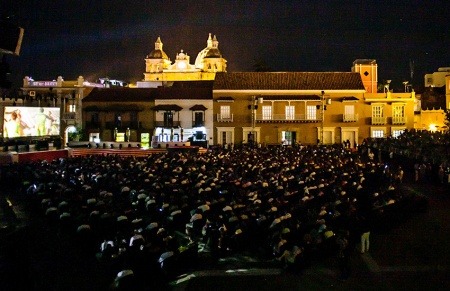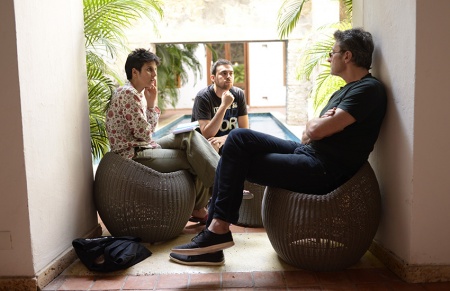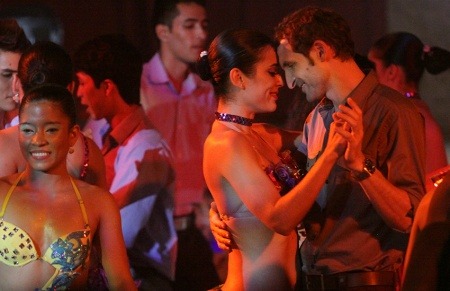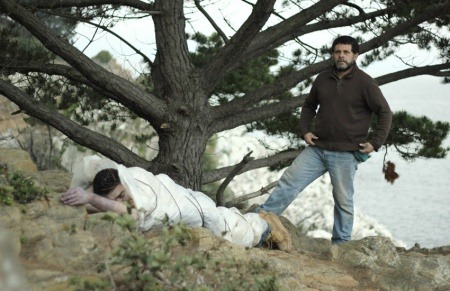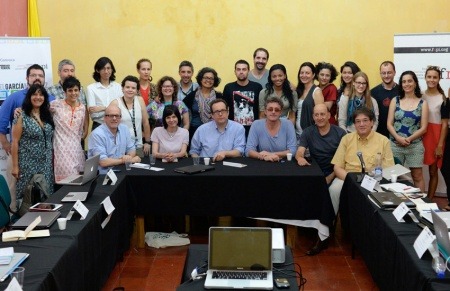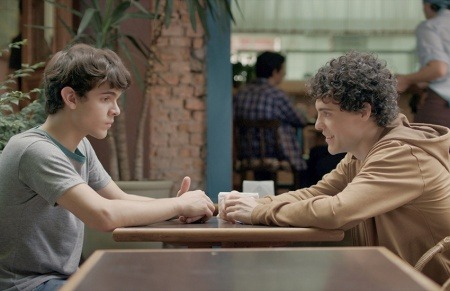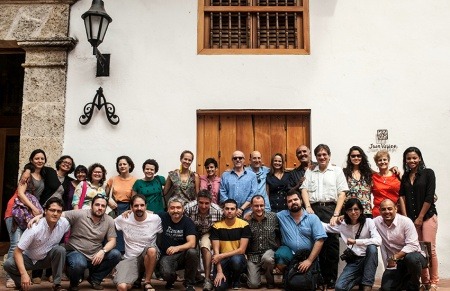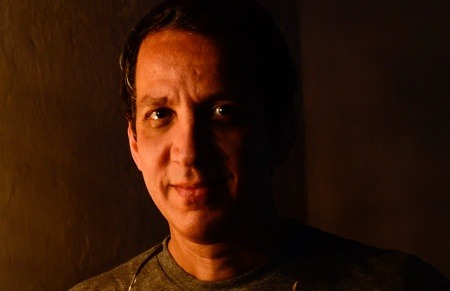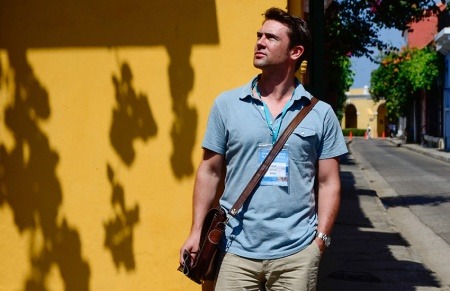Twice in three days I found myself navigating the Magdalena, first on a speed boat from the town of Magangué, a 90-minute trip, and next on a small riverboat with a local tour guide. The sheer girth of the thing is overwhelming. So much water. I live in Los Angeles. We do not have a river like this, though we often speak of ours as if it were once as grand, and ever as important. Flowing for a mere 51 miles, the primary significance of the Los Angeles River is its mismanagement, which now has it largely paved with concrete. Though I doubt such a calamity will ever befall the Magdalena, the threats it faces could be perceived as similarly damaging.
“Morro dos Prazeres” opens with a group of kids playing a kind of backwards version of cops and robbers. Here, it’s the robbers that go after the cops and once they catch them, force them to kneel down and rough them up, whacking them about the face with training guns made out of cardboard.
The Cartagena Film Festival is holding a retrospective screening of John Sayle’s films. All the more reason to ask the man himself how he came to be the father of American independent cinema while all along working behind the scenes for the big Hollywood studios making uncredited script work or as they say script polish.
Ethan Hawke wanders the streets of Paris looking like someone who has swallowed something big he cannot easily digest. He is an American writer who has seen better days and who is in Paris to reconnect – after a stint in a mental institution – with his little daughter.
Encountering a new place is an omnivorous experience. “You eat it,” says Alexander, “You want to taste everything; you want to try everything. You can only feel that enthusiasm the first time when everything is fresh. You want to learn the language, the music, everything.”
Cartagena’s lights are lit, while one conveniently turns a blind eye on darker streets like El Cartucho in Bogotá – or worse, leaves them burning. Ciudad Delirio, Cali, another easy rom-com, another mirage of love that promises to last longer than the dance. Or so you would like to say, thinking you have out-witted the magician. But love is not simply blind; love is the moment before you have it figured, when you are gawking wide-eyed at what could only be magic. In Colombia, between wonder and loss, someone helps me say it right: films may be an illusion, but joy is not. The astonishment, like I’ve heard them say, is real.
Colombia’s movie industry has grown exponentially, and is now Latin America´s fourth largest, with over 20 productions last year. The new cinematic voices of Gamboa and Guerra approach the past and present of the conflict, in a distinct way. “Desterrada” and “Mateo” strike a timely chord and pose some powerful and urgent questions. What does it take to forgive and make peace? Can art help?
The Gabriel García Márquez Fellowship in Cultural Journalism is divided into two modules: film and popular culture. All modules were coordinated by the FNPI master lecturer Héctor Feliciano and the American journalist Jonathan Levi.
Meet the journalists that will join us in Cartagena and Aracataca during the 2 weeks to explore the popular culture that inspires Gabriel García Márquez.
Meet the masters and experts who will lead the second edition of the Gabo Fellowship, held in Cartagena and Aracataca.
There’s nothing remotely racy about “The Way He Looks,” a tender romantic comedy about the budding romance between Leo and Gabriel, but even so, the crowd buzzed with nervous titters every time the two protagonists flirted or even eyed one another. And then at the end of the squirmy session, even before the credits start rolling, the audience burst into cheers, and a crowd of snapshot-seekers enveloped director Daniel Ribeiro.
The aim of this workshop is to use the themes of music, literature, and popular culture to strengthen the foundations on which cultural journalism is built, specifically the interview, extended reportage, and critical commentary. This will also be an opportunity to reflect on the role of cultural journalism in an era in which the creator and the audience can increasingly communicate more directly, facilitated by digital media.
The American alternative cartoonist and illustrator was fully aware of the harsh lens under which literature lovers have viewed his book. People tend to dislike a newer version of something they’ve grown to admire. “Who is this man tampering with Kafka? How dare he? I know people had thought of my book like that before they read it. It’s natural. Personally I didn’t get around to thinking too hard or I wouldn’t have done it. I went with my instinct.”
Sheers and the director, Stephen Rayne, traveled around the UK, visiting barracks, personnel recovery units and rehabilitation centers. “We became well-acquainted with the names of certain drugs, types of prosthetics, military jargon”, wrote Sheers in The Guardian. Even before he interviewed the soldiers, Sheers wrote the humorous “medication song”, a list of medication – ibuprofen, paracetamol, omeprazole, esomeprazole, fluoxetin, citalopram – representing their addiction to drugs prescribed for their physical and psychological trauma.
